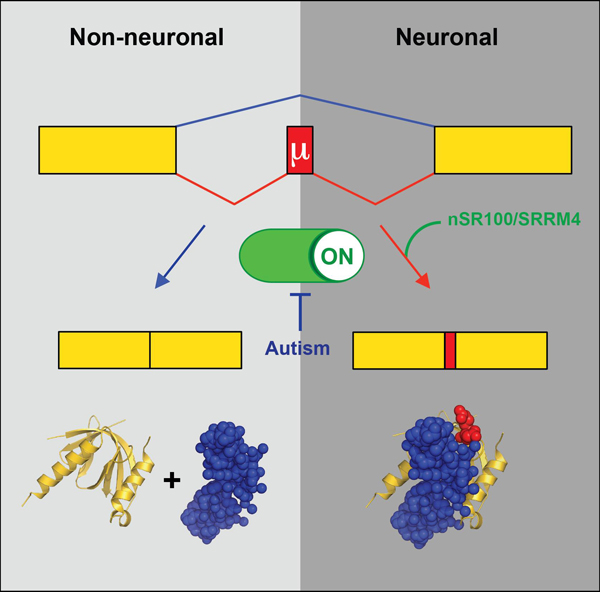MI-CRG
Manuel Irimia: Transcriptomics of vertebrate development and evolution

We are interested in understanding the roles that alternative splicing and other mechanisms of transcriptomic diversification play during the development of vertebrate central nervous systems, and how novel transcript variants have contributed to shape our brains during evolution. By combining computational and experimental approaches applied to in vivo systems (zebrafish and mouse) our research focuses on the functions of cell type-specific transcript isoforms during the ontogeny of the central nervous system. Among these isoforms, perhaps the most fascinating ones are those containing microexons, tiny exons that encode as little as one or two aminoacids but show striking switches during neuronal differentiation, unmatched evolutionary conservation and remarkable protein properties that often module protein-protein interactions. Moreover, our recent findings suggest that misregulation of microexons in humans is associated with autism spectrum disorder, opening new venues of research to understand the molecular bases of this complex disorder.
Group Website:

